How Makerere students are producing fuel from plastic
Oct 17, 2018
The group based their innovation on research on reusable and efficient energy sources.

INNOVATION
(All photos by Jovita Mirembe)
KAMPALA - A group of Makerere University students have come up with an ingenious way to produce fuel - by using plastic waste.
The 10-strong team of business students make up a technology-driven company established in July this year.
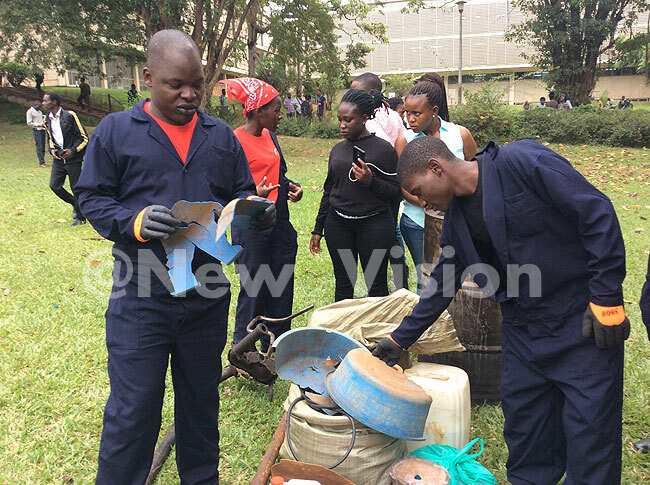
Kintu checks out the plastic waste to be heated to produce fuel
Alpha Investments Limited's marketing manager, Richard Kintu, says the aim of their innovation is to provide eco-friendly fuel to Ugandans by putting plastic waste to good use.
They also want to create jobs for young people.
"The company seeks to transform plastic waste into commercial petroleum that can be used by households, transporters and industrialists at affordable prices," said Kintu.
The group based their innovation on research done by David Ofwono, a student scientist, whose vast research is on reusable and efficient energy sources.
During this year's Makerere University Entrepreneurship Expo, Ofwono took us through the steps of producing fuel from plastic waste.
To begin with, you must have plastic waste of Low Density Polyethylene (LDPE) and High Density Polyethylene (HDPE) because they are the suitable types for producing fuel.
So how do you know which is which? They are marked underneath.
Then weigh the plastic waste and place it inside the reactor drum for heating.
Next, fix the upgrading unit to the reactor drum.
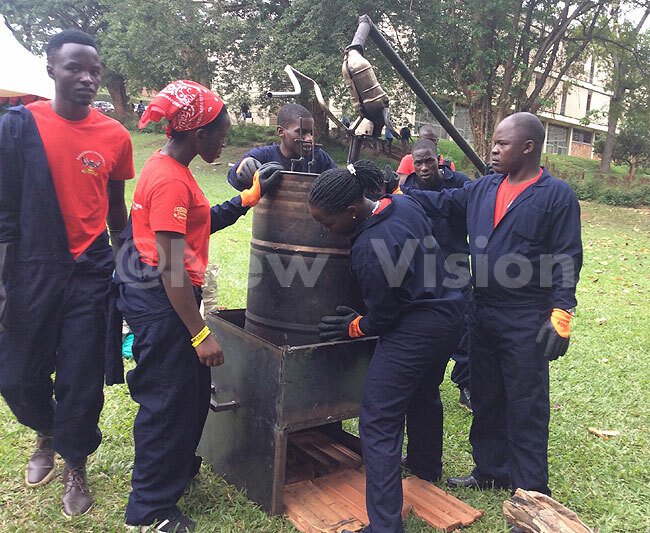
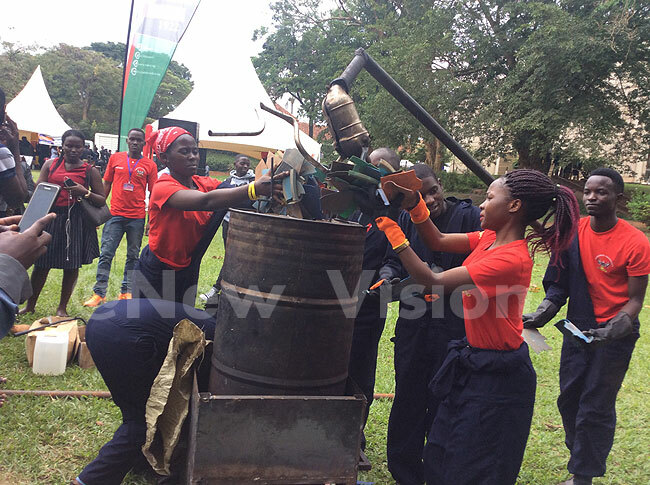
Seal any hole on the reactor drum with aluminum foil paper. Holes will allow in oxygen, which will react with hydrogen to producing water. This will in turn lower the temperature of producing the petroleum.
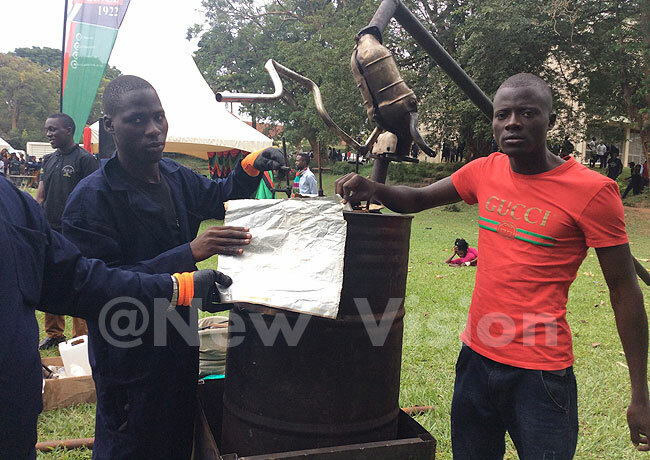
David Ofwono (left) and a colleague displaying the aluminium foil used to cover the reactor
Heat the reactor drum using, say, firewood and leave the plastic to boil to up to 300°C, during which the plastic will be broken into compounds of carbon and hydrogen, hence producing vapour that is crude oil.
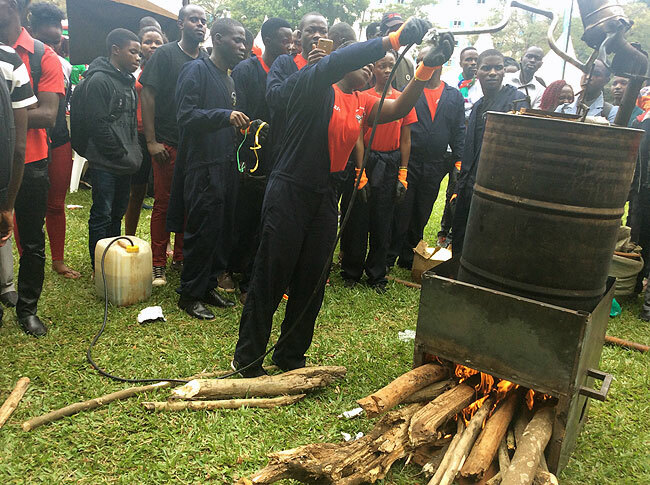
The entire process takes up to two hours.
The crude oil is then re-heated for 15 to 20 minutes on low heat to produce petrol as it is lighter than kerosene.
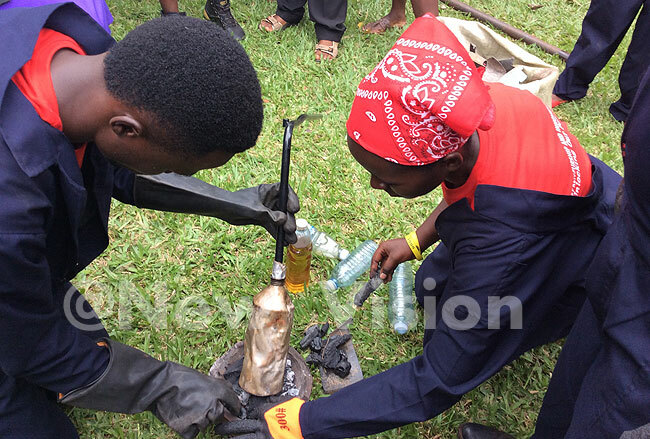
Crude fuel being heated to produce petrol
If you want kerosene, the heat must be moderate. For diesel, the heat must be high because it is heavier than petroleum and kerosene.
Kintu said that since theirs is a new innovation, they have not yet started selling the fuel. What they have done is to give it to some people to try it out and give them feedback.
The company is in the process of getting registered and is proposing to sell the fuel at a price lower than the respective market prices.
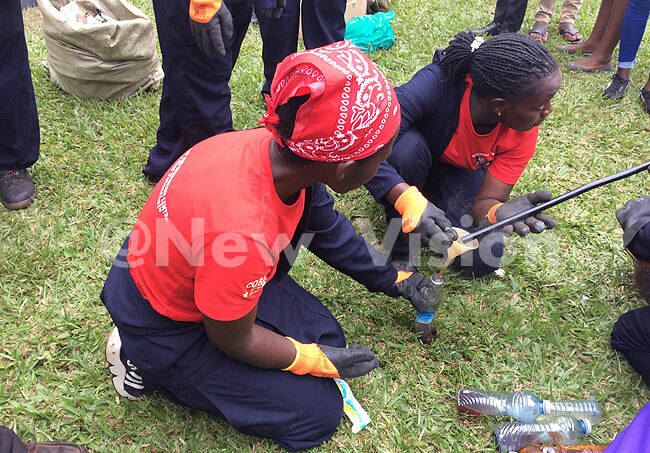
Students filtering diesel from the crude oil
Samuel Begumisa, the chief executive of the investment, said the challenge they have now is buying an automatic electric reactor drum which can control the level of heat when heating plastic waste. He said it is expensive.
Right now, the group is doing this manually with a locally made reactor drum, which takes a long time.
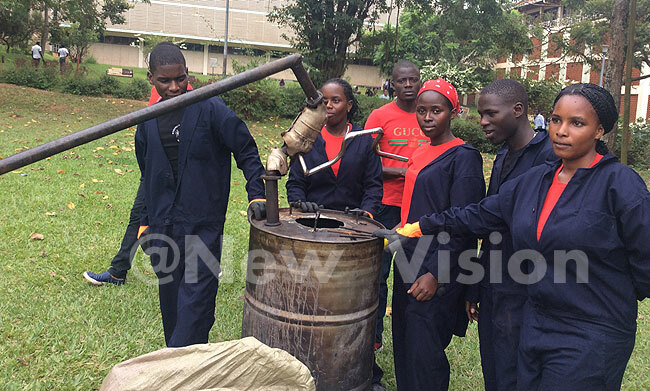
Holding the bottles where the crude oil is channeled also makes the process slow.
They are appealing to Government to support their innovation. With financial support, Begumisa says that in the next four years, they hope to set up a fuel -producing factory from plastic waste.
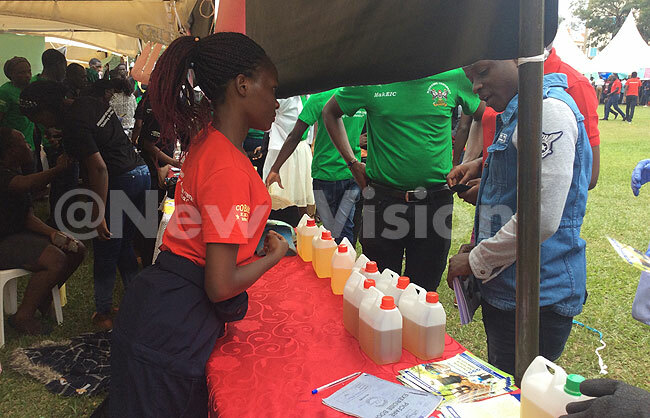
The students put on display their sample fuel made from plastic waste during the Makerere University Entrepreneurship Expo
